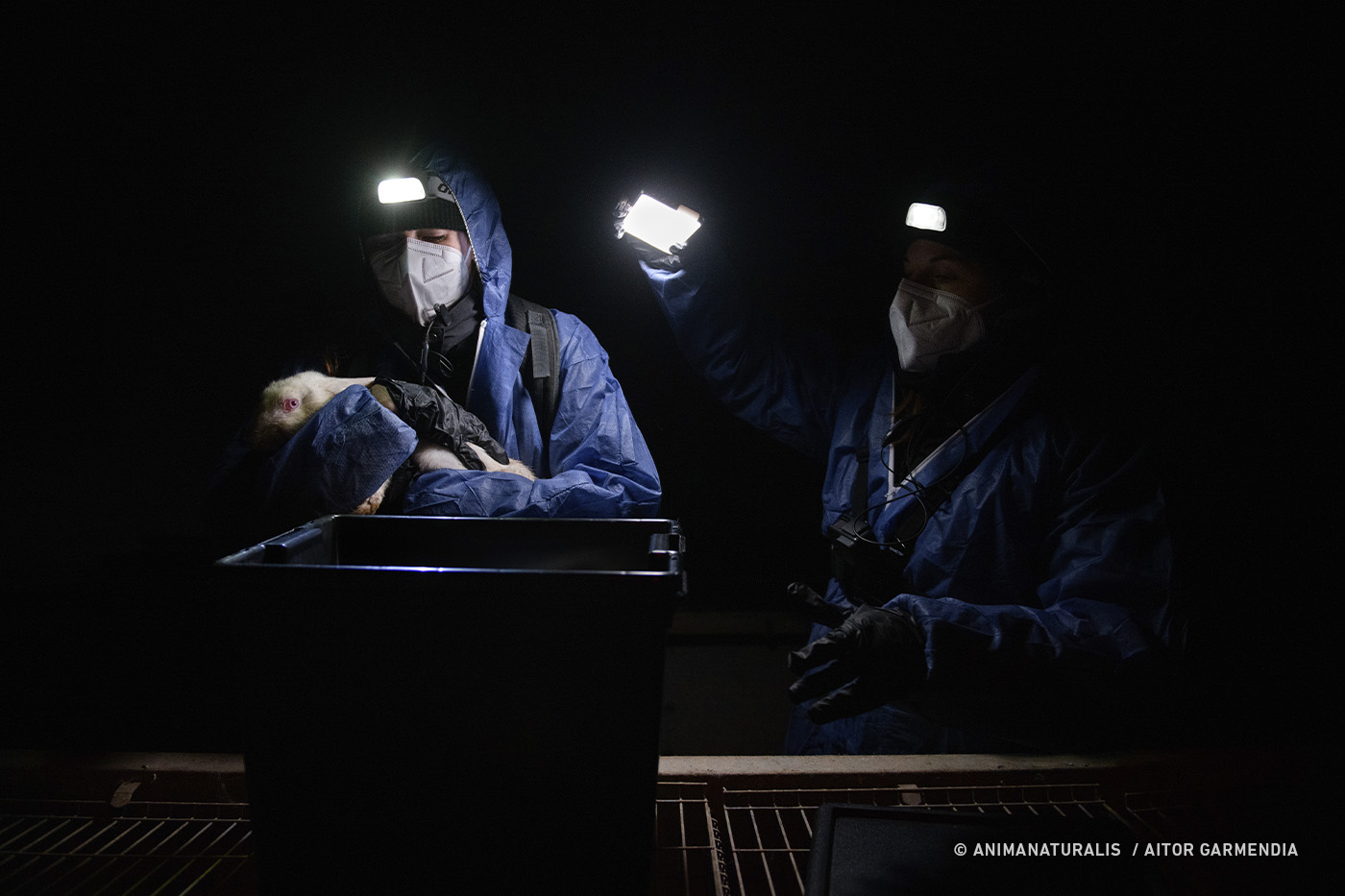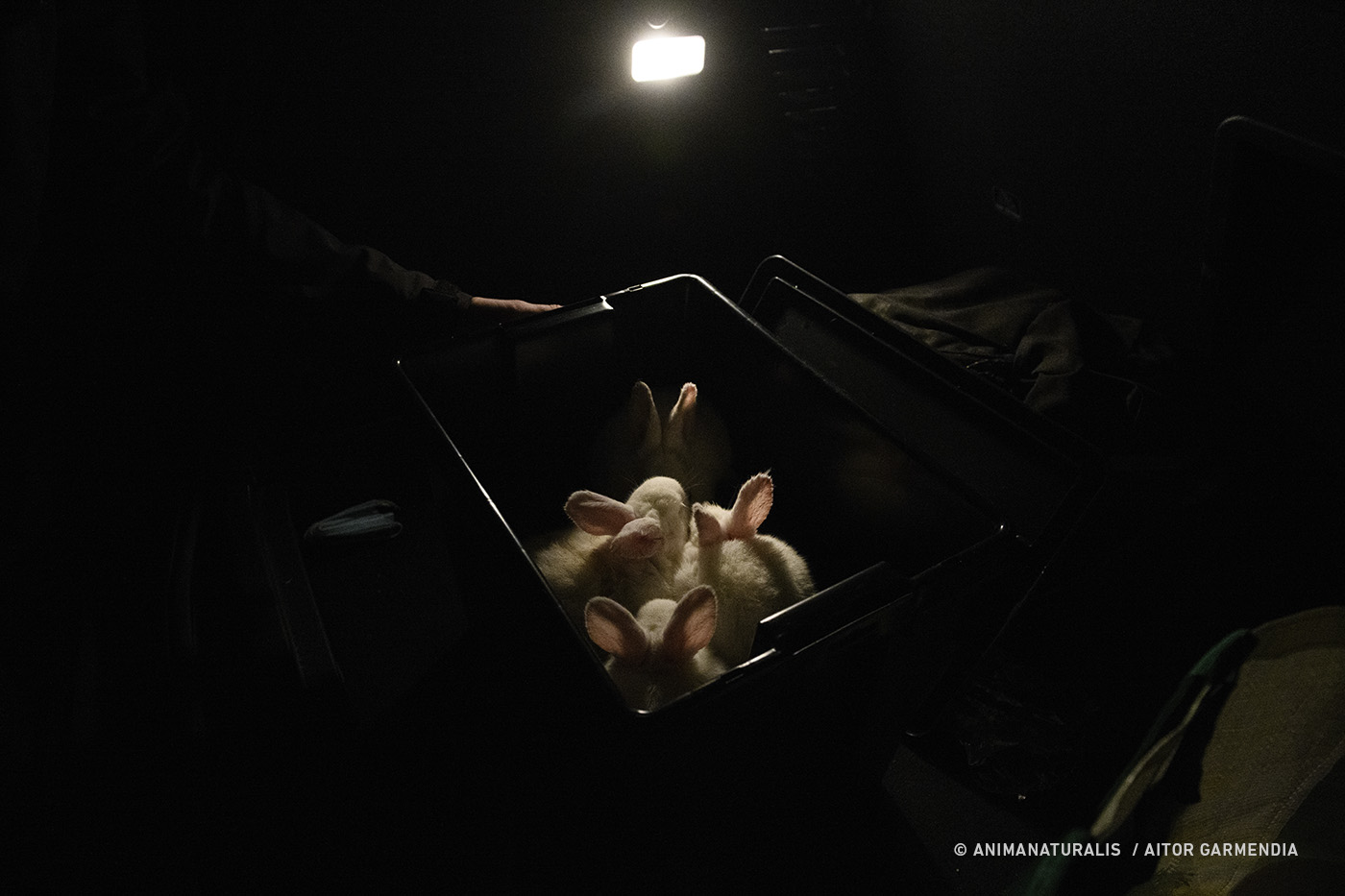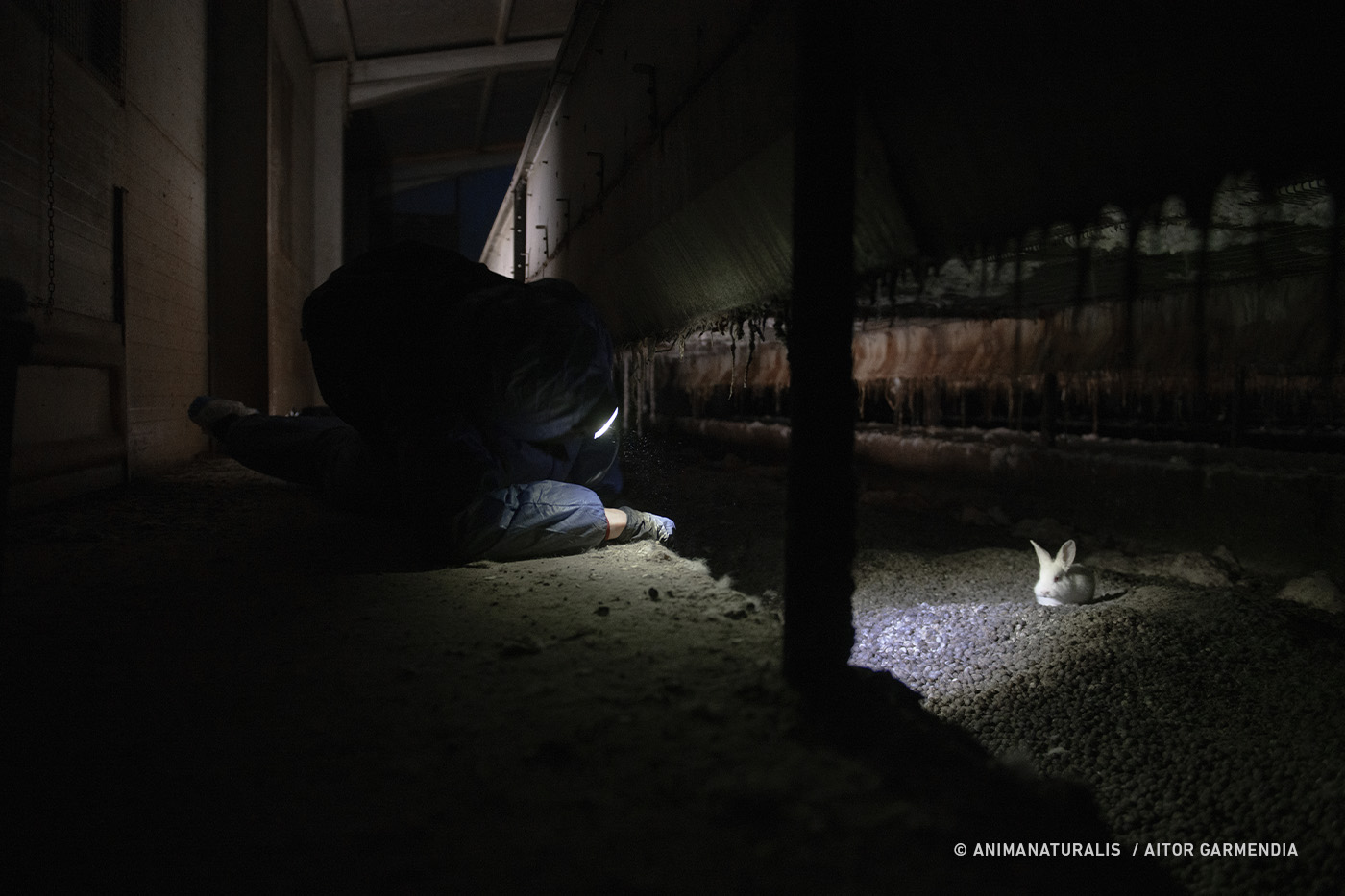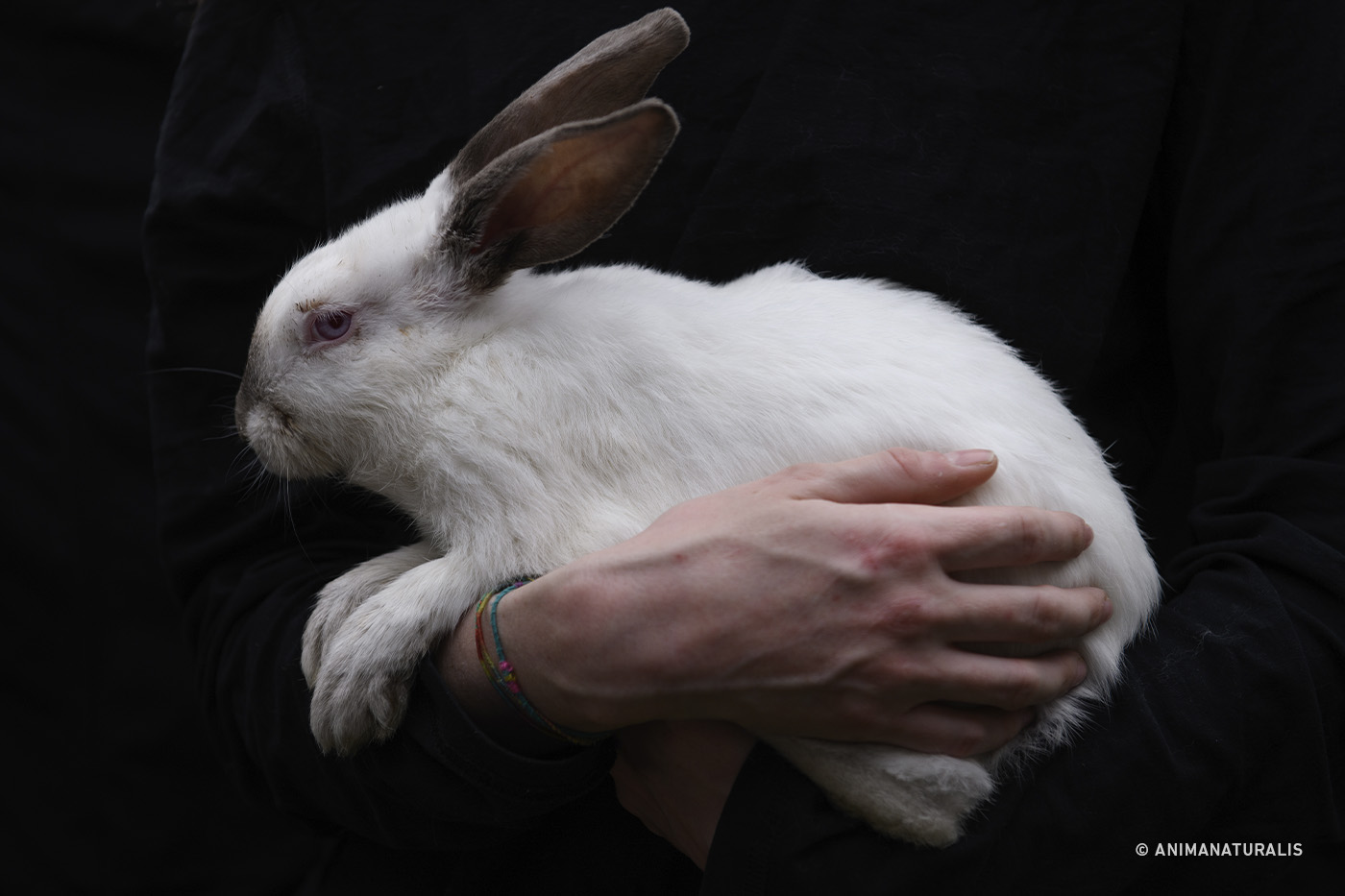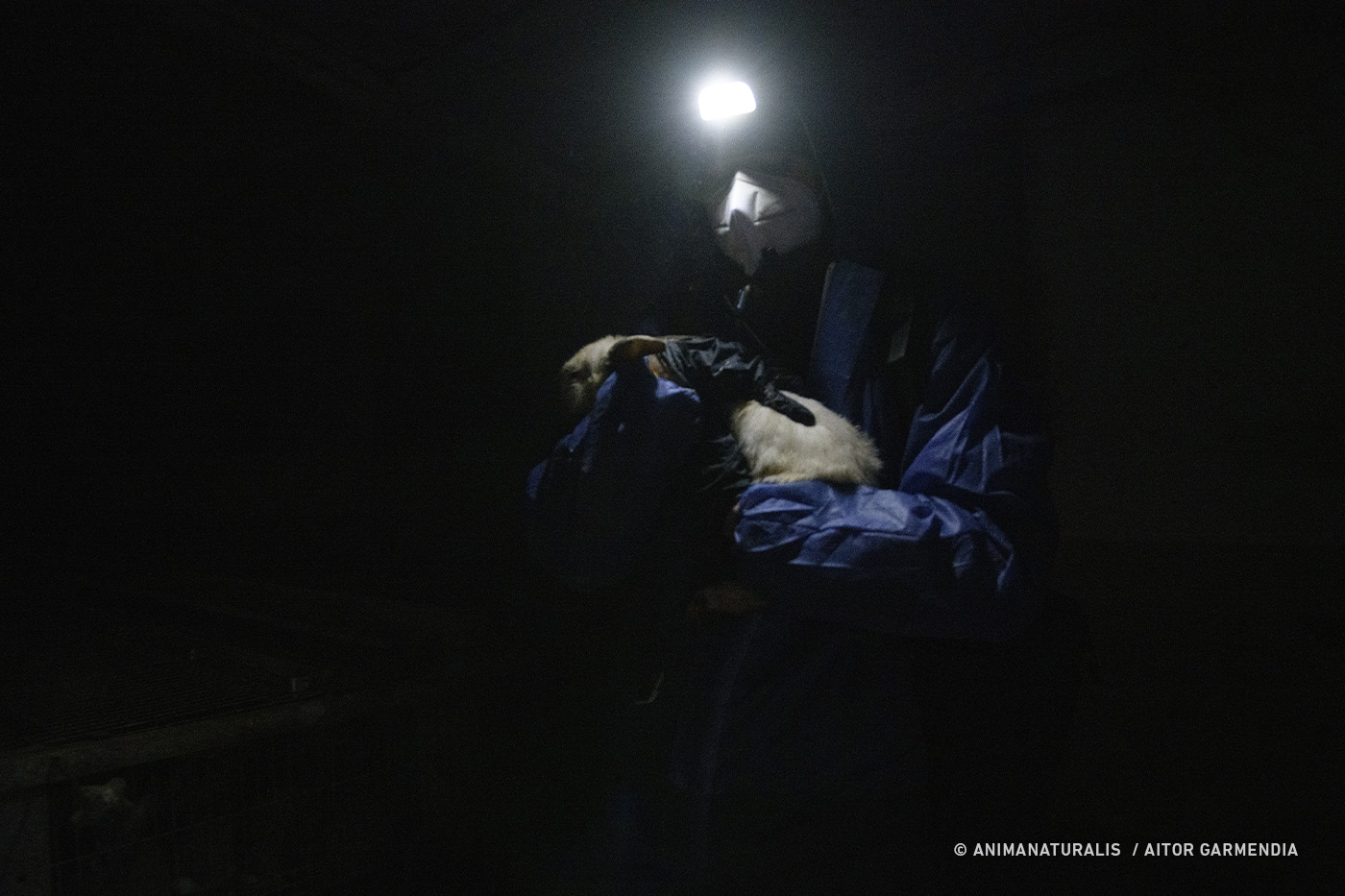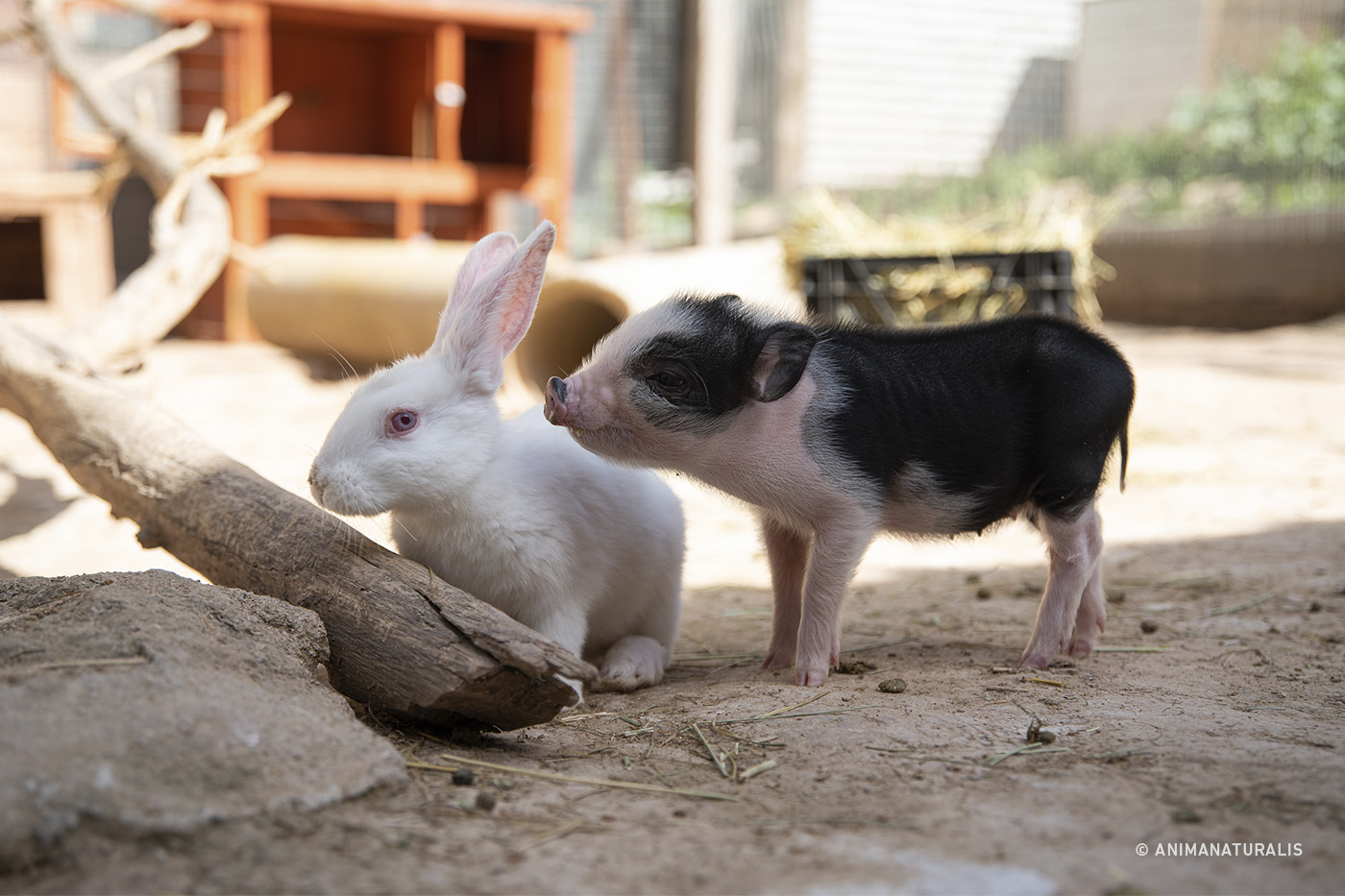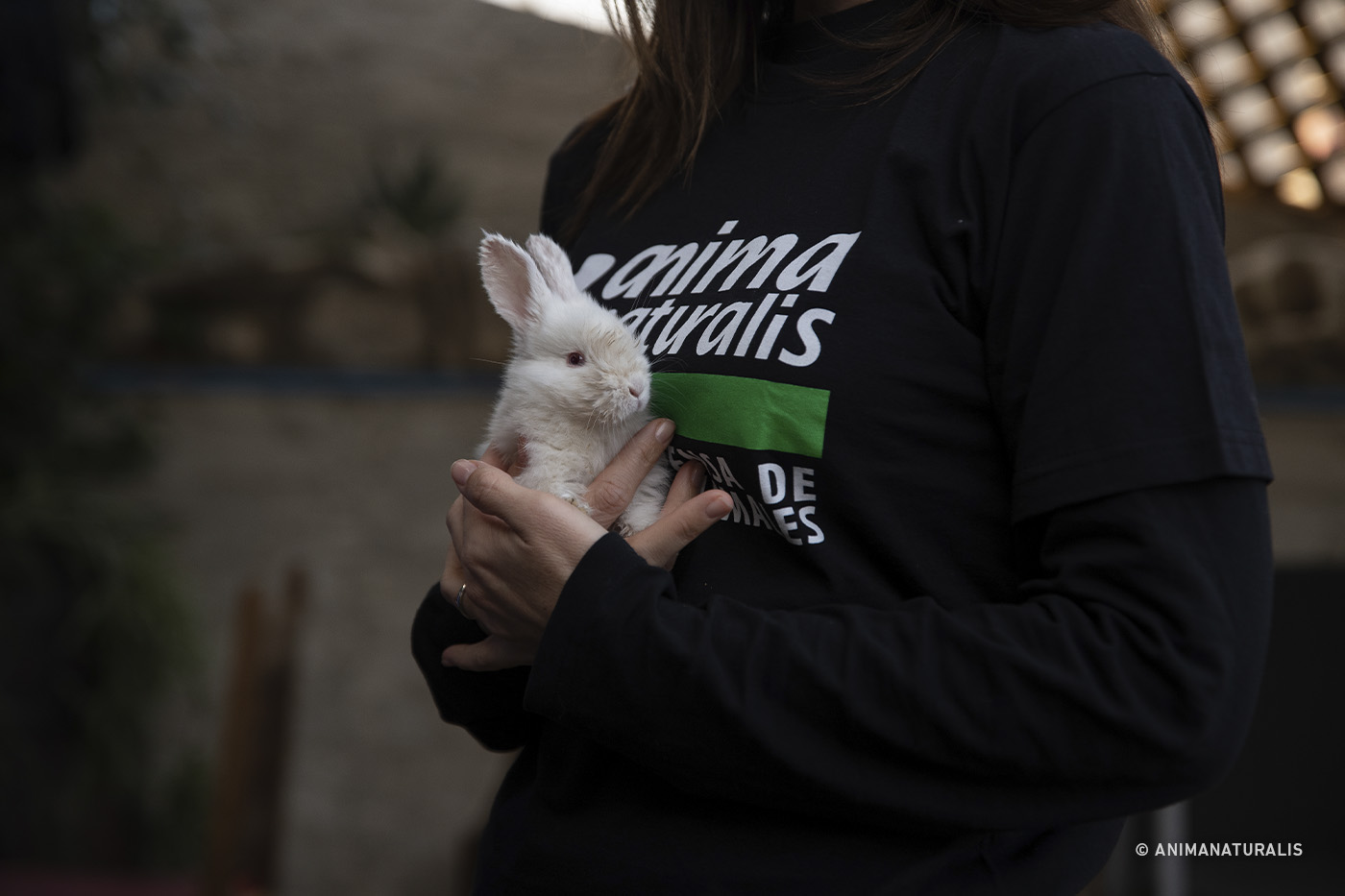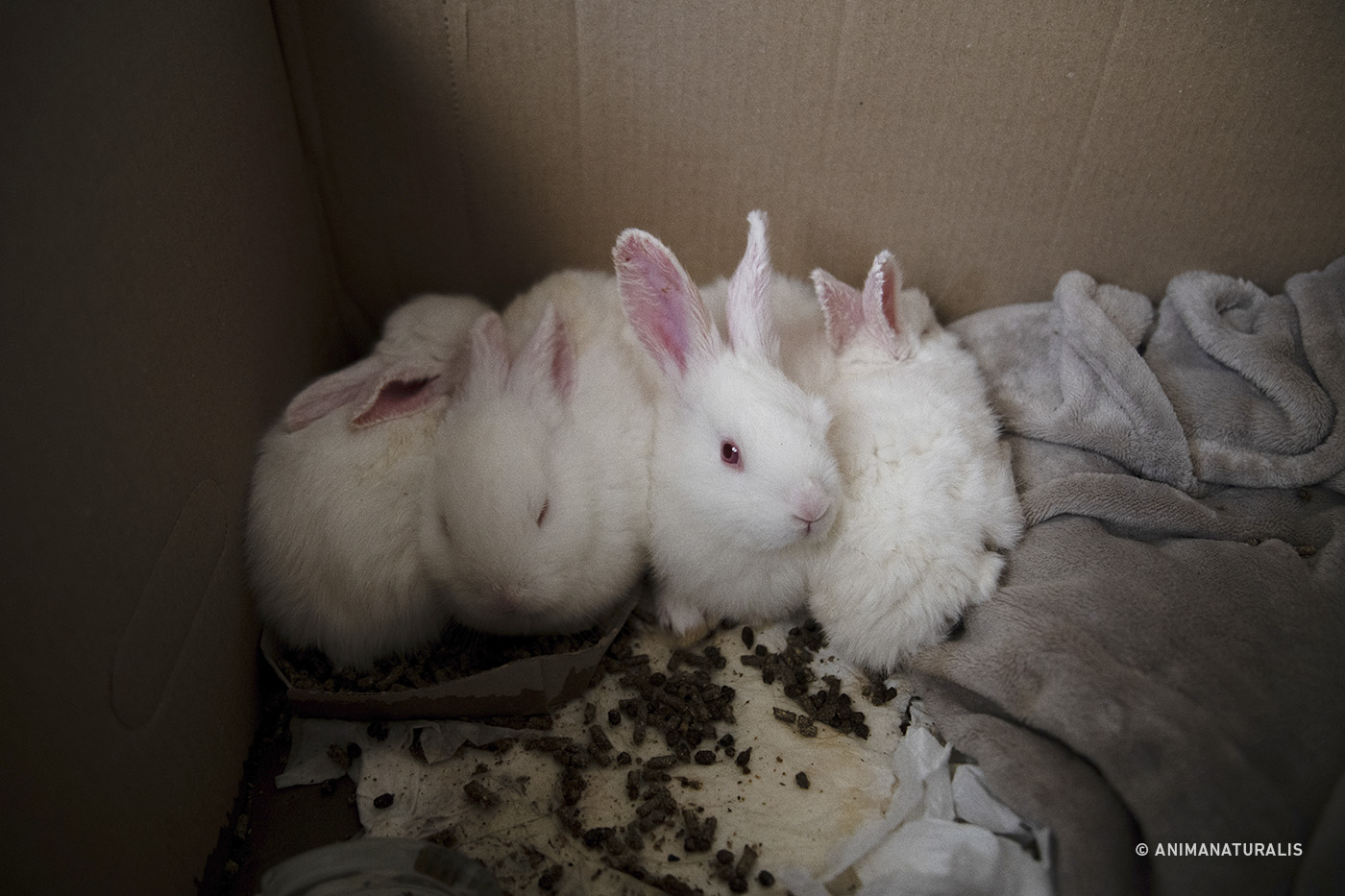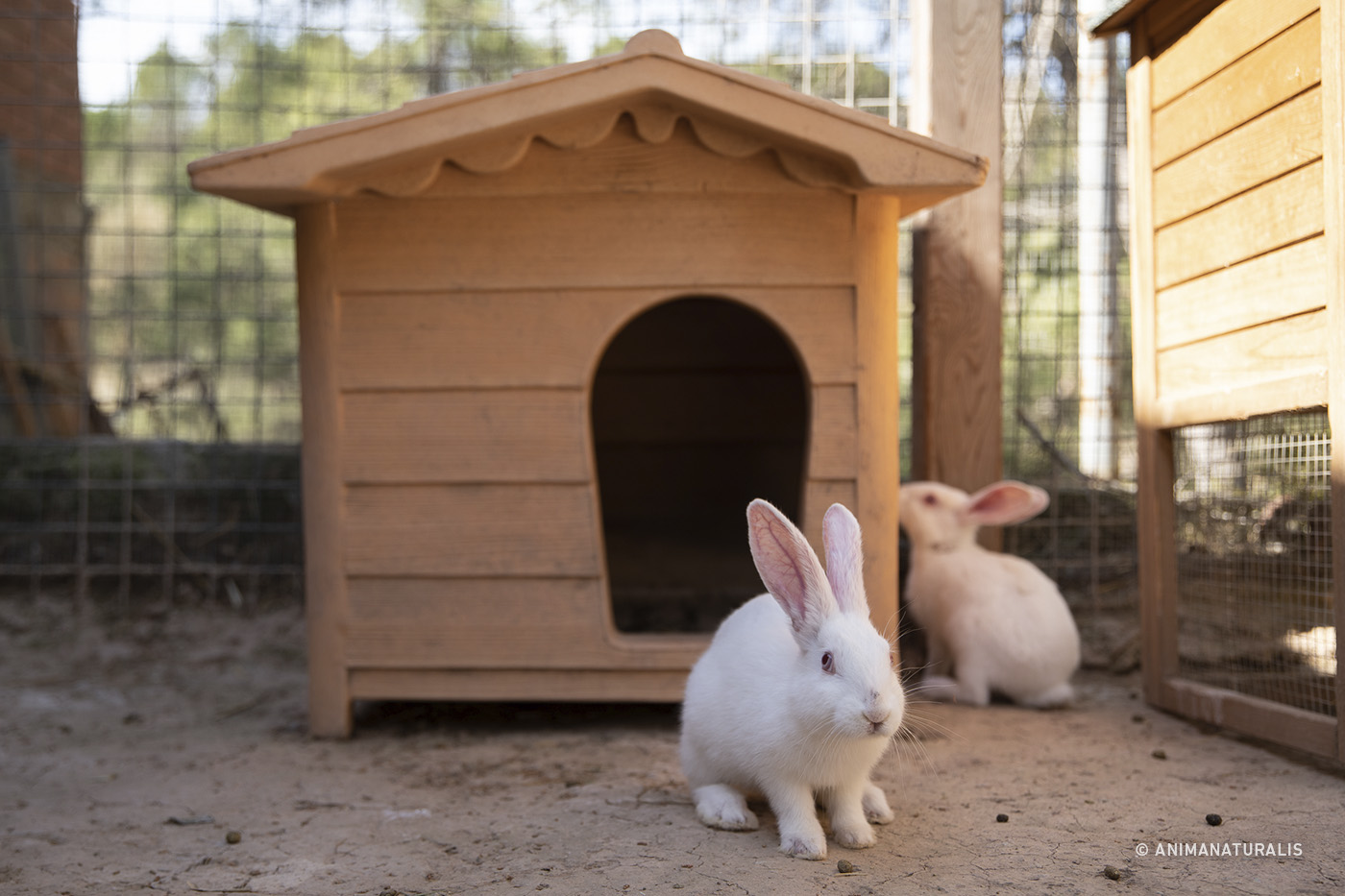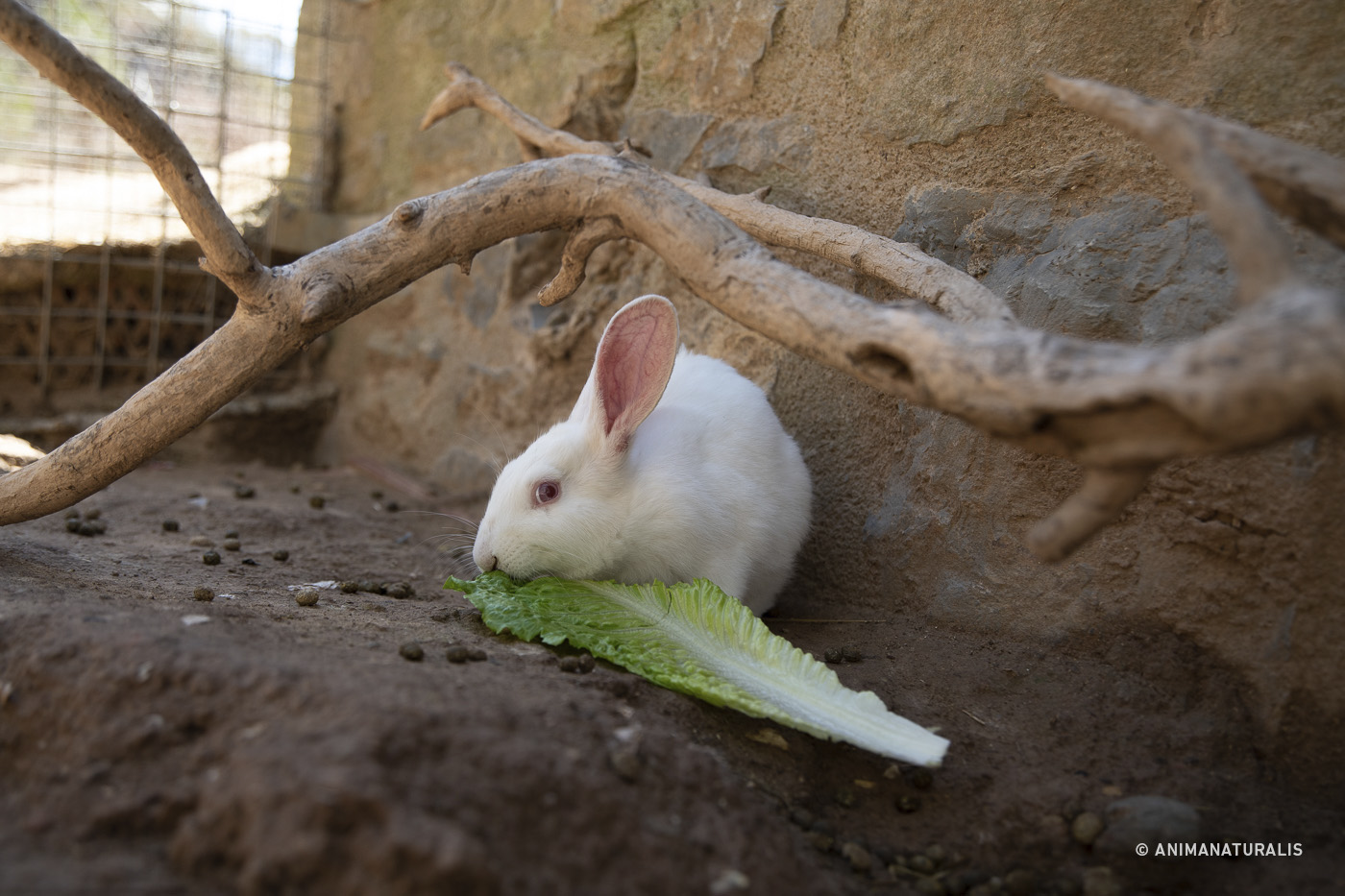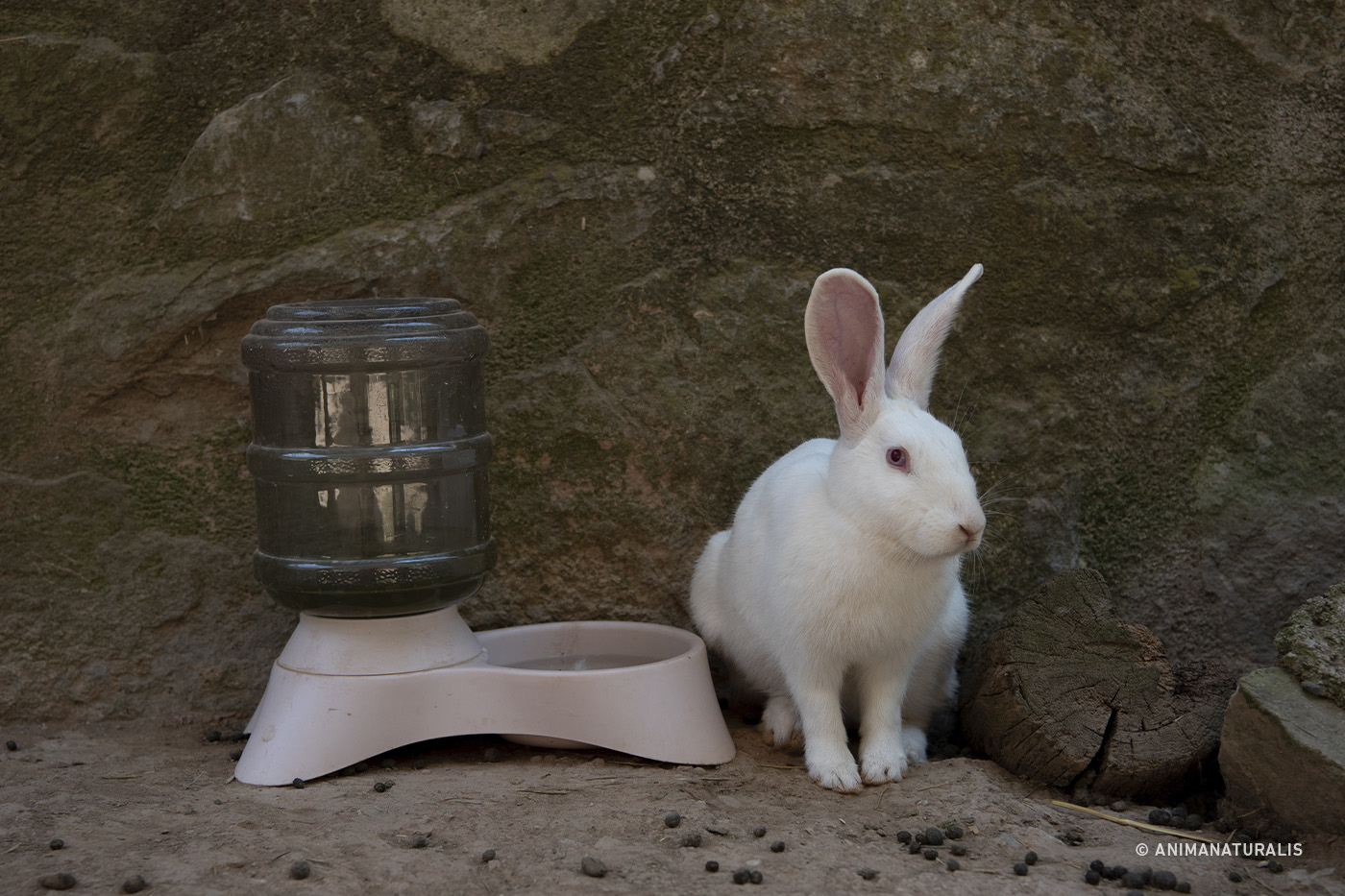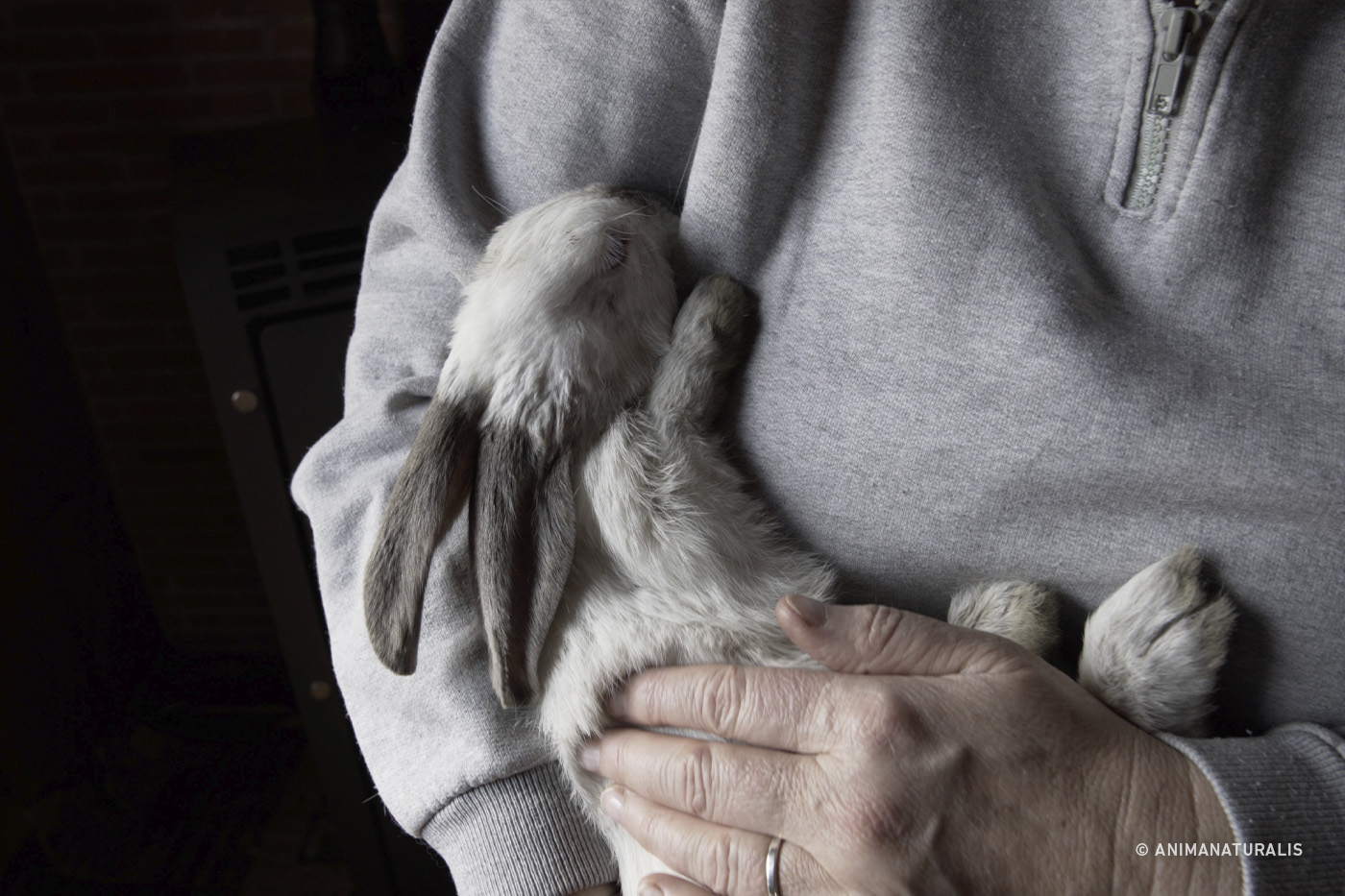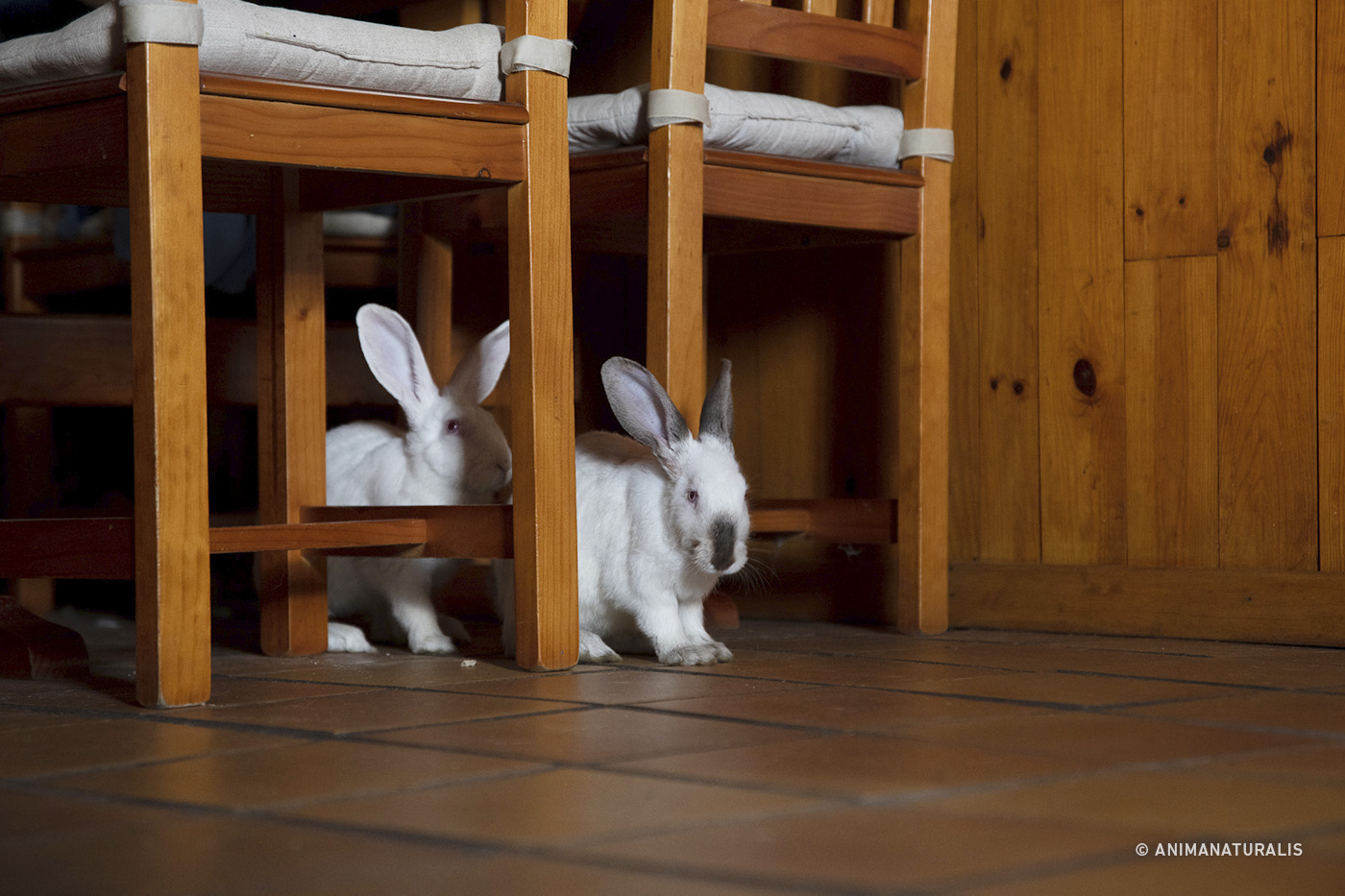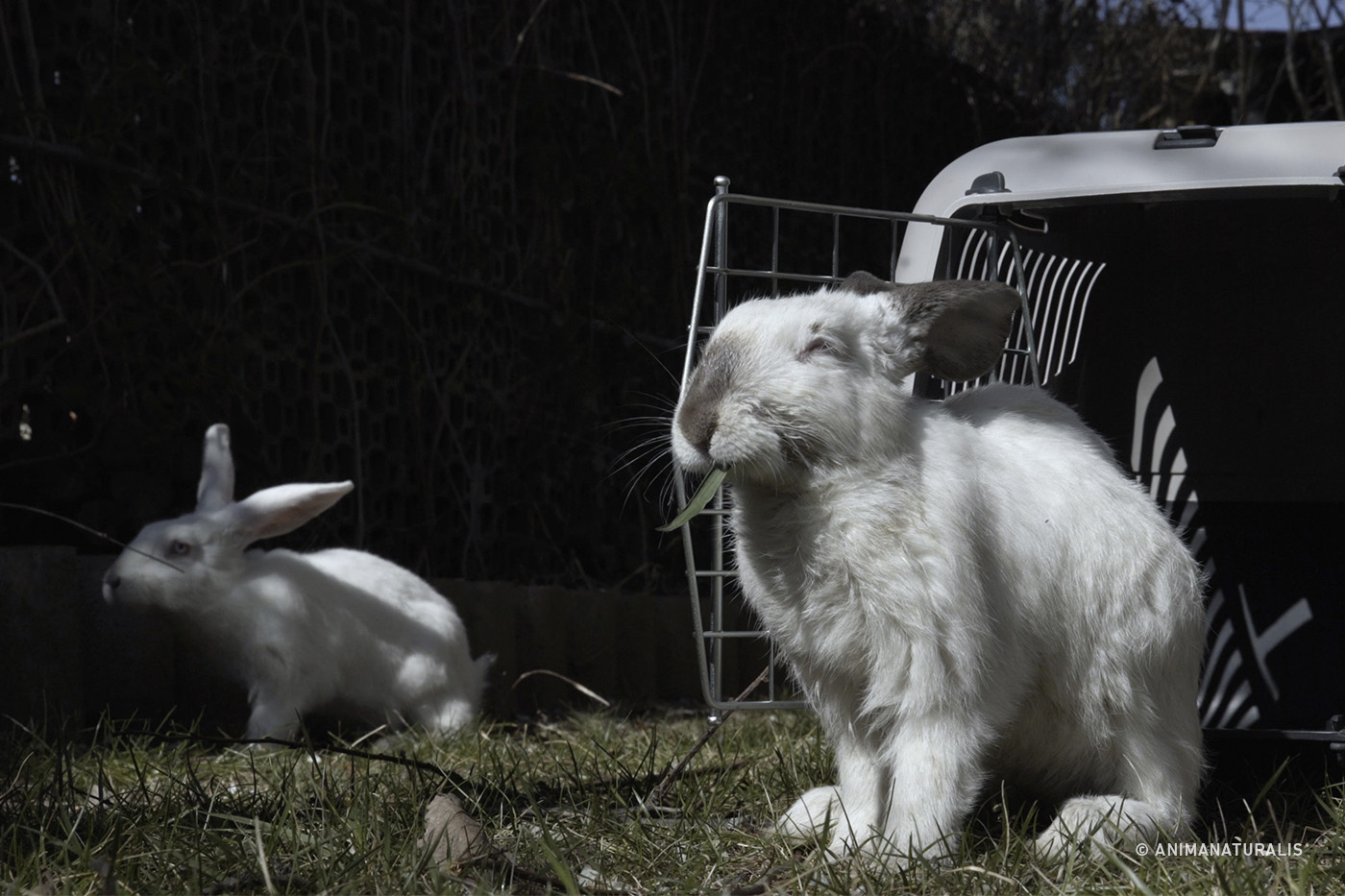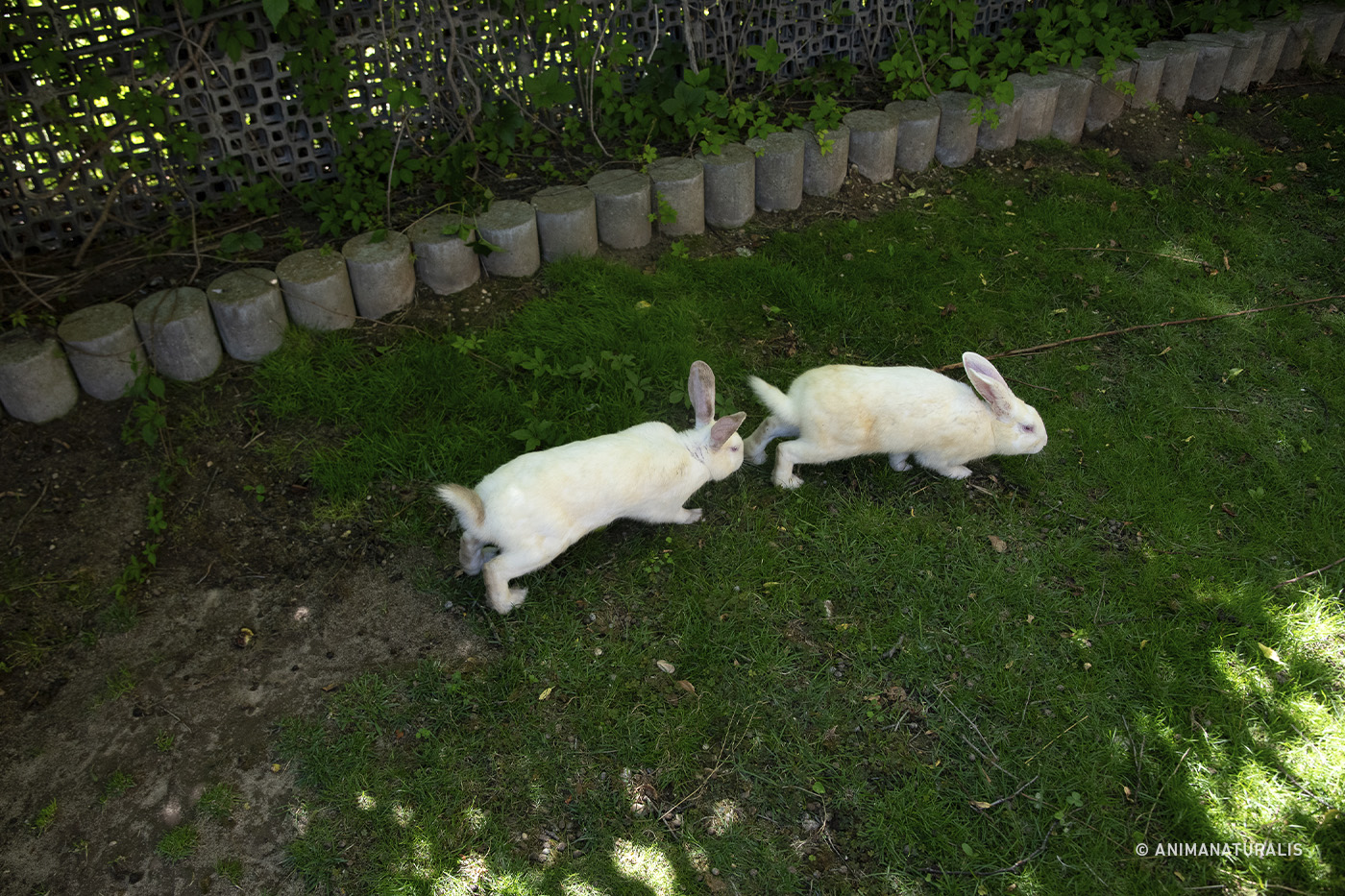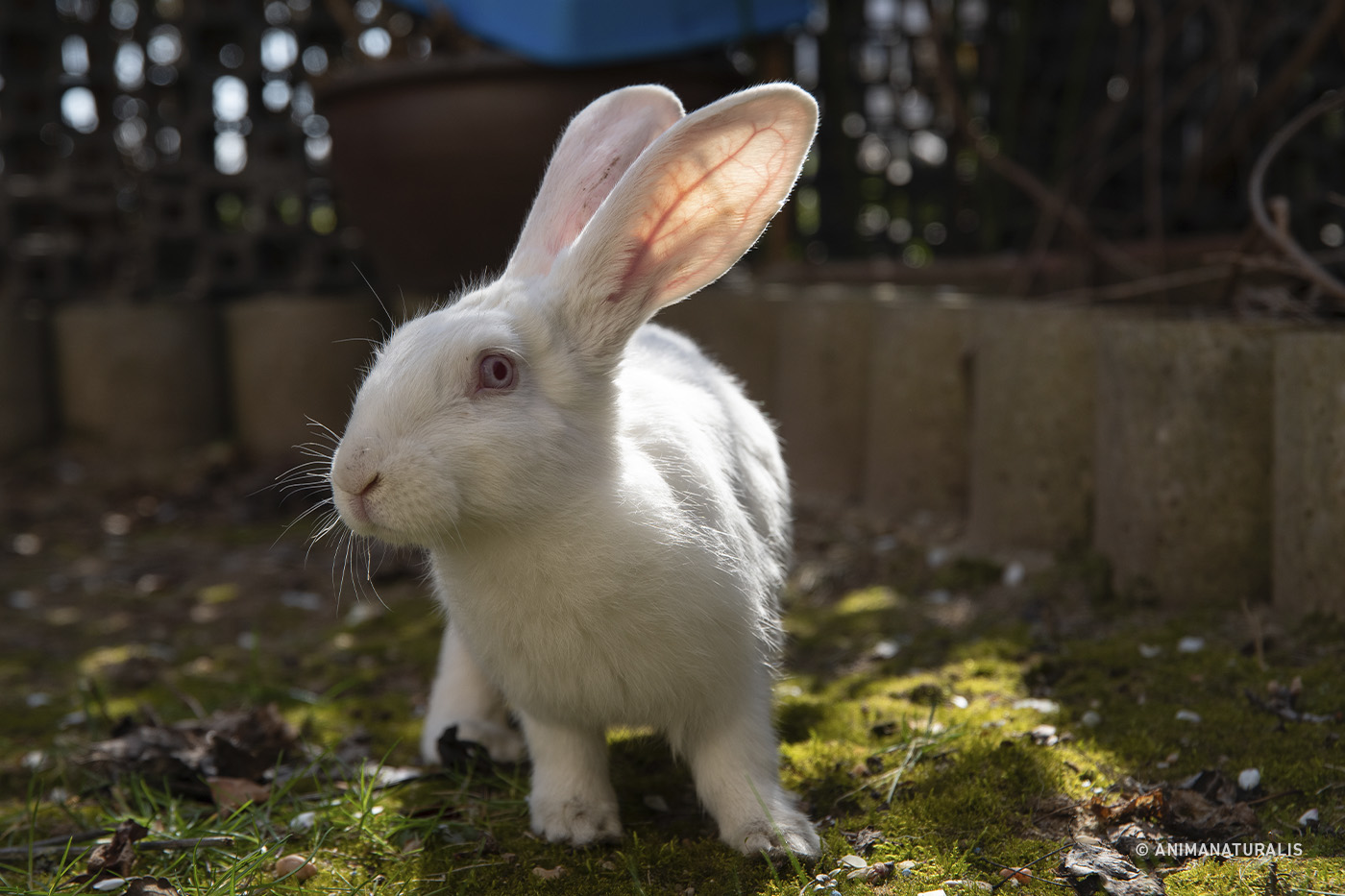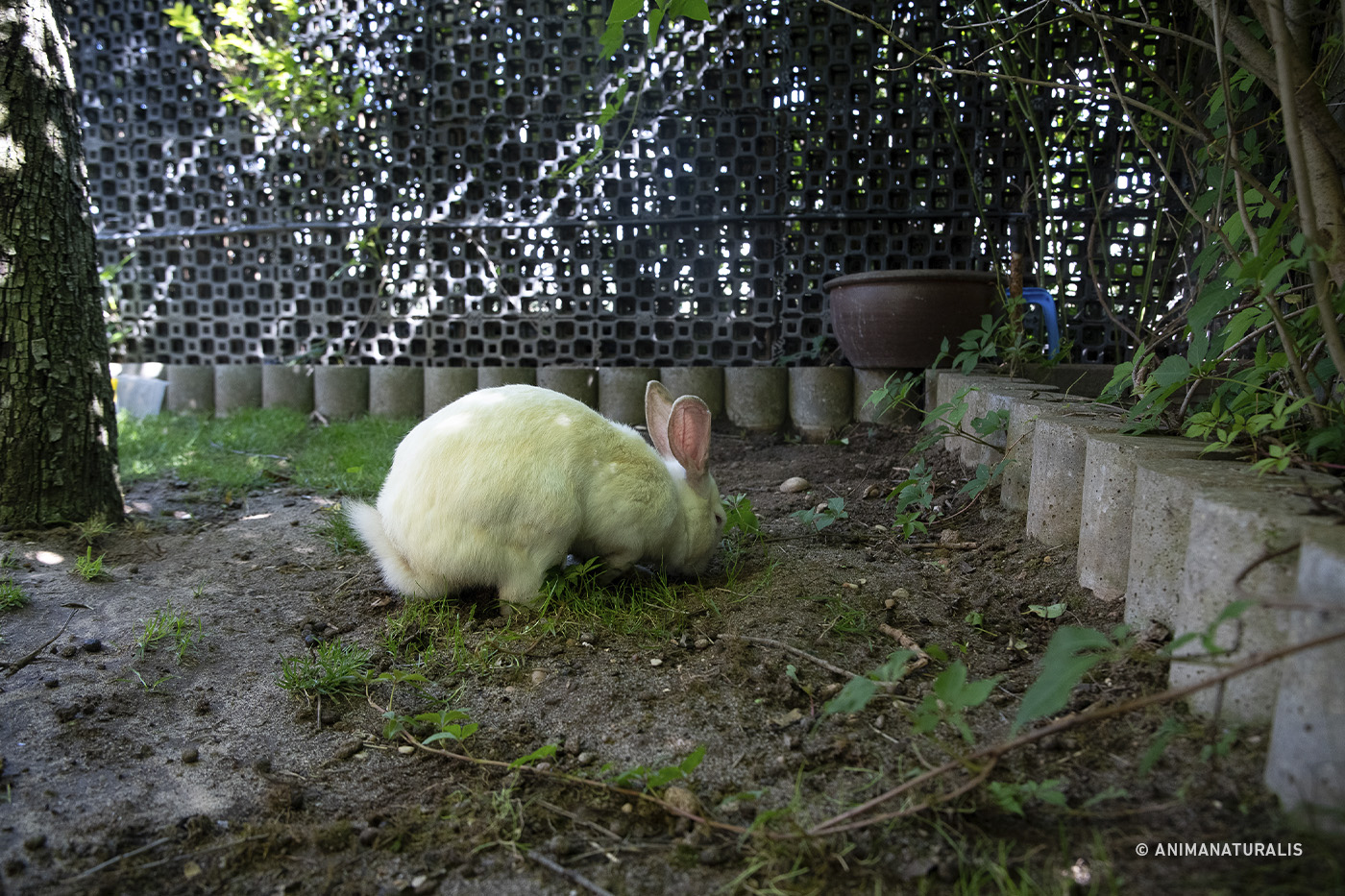Hi, I'm Lara. If you're here, you've probably seen the investigation we recently launched on the breeding of rabbits for their meat in Spain.
The images we obtained are heartbreaking, but today I want to share with you a little bit of hope among so much injustice. It's about the nights we managed to free 6 lucky ones from that hell.
Little Mikel, Floc, Marta and Neu were barely two weeks old when we found them in that pit. They were lying on excrement, surrounded by insects and without access to food or water. We don't know how long they had been there, but it is clear to us that they could not have survived much longer.
The hygienic conditions of the farm were awful. The cages looked old and rusty, and some were even broken. Upon inspecting the place we saw several baby rabbits on the floor, so we decided to take as many as we could.
Honestly, for a moment I felt overwhelmed. Who am I to decide who lives and who dies? The plan was clear: we had to catch them in as little time as possible, get out of the farm with them and get to safety, but the certainty of what would happen to those we left behind paralyzed me.
Who had the best chance of survival? Who needed help most urgently? As I crawled along the ground trying to reach them, I assumed I would find no answers.
No, it wasn't fair. I shouldn't have to make a decision like that but, much more importantly, none of them should be there. The only sure thing was that everyone we couldn't help was going to die, either on the farm or in the slaughterhouse. So we needed to stop thinking and act fast.
We started walking around the building at full speed, we managed to catch four of them and put them in a warm box. It was only when we reached the car, with all four sleeping peacefully, that all the anguish turned to relief. The hardest part was over.
But rescuing an animal is not only about getting them out of the place where they are being exploited. The most important thing is to be able to guarantee decent living conditions, where they will be cared for as they deserve, where they can recover and spend the rest of their days free of suffering.
Luckily, the colleagues from Refugi El Cau del Bosc did not hesitate for a minute to accept to take care of them. The next day, the rabbits were already on their way to the place where they would receive all the necessary care, to their new life.
At the veterinary examination we could see that all of them had fungus, parasites and were malnourished. Mikel, little Mikel... he was the weakest. His little body could not recover and he was the first to die. Neither did Marta, despite the efforts of her caregivers.
It was a very hard blow, but we at least had the peace of mind that they had been showered with attention and affection. Because although they were forced to be born into a hostile world, which treated them as objects from birth, they were able to meet some humans who did recognize them as individuals and treated them with love.
The good news is that Floc and Neu made it! They are still living happily, almost a year later, and enjoying all the attention, a big family of rabbits and space to develop their natural behaviors at El Cau del Bosc.
We kept working for several nights and later in the investigation, we had another opportunity.
That farm is without a doubt one of the most sickening places I have ever set foot in. Although it was barely half full, the pits were overflowing with purines, flooding the corridors, and the smell was unbearable even wearing a mask.
The rabbits there were about three months old. It may not seem like a long time, but for a rabbit raised for its meat this is practically their entire life. They were about to reach the optimum weight for the market and, therefore, be sent to the slaughterhouse.
While inspecting the place, we noticed a rabbit wandering around on the ground. He had gray ears and a gray nose in contrast to the rest of his white body, which at the time was covered with dirt.
Carlitos was so thin I could feel his spine. He probably hadn't eaten for days and had a pretty nasty wound on one of his fingers. Without him putting up too much resistance, we were able to take him in our arms to get him out of there.
Then we noticed Zuri. He was all alone in a cage, very dirty. He was tilting his head because of an ear infection and scratching his ear violently. There was still space for him and we decided to help him.
After visiting the vet, we had to carefully bathe them, give them medication and treat their wounds for days.
Carlitos and Zuri were adopted by a family with whom they were able to show themselves as they were. Every day they ate fresh fruits and vegetables and enjoyed for half a year a huge garden where they were free to run, jump and dig.
Here they felt the sunlight for the first time and were able to stretch out fully on the grass. They liked to scratch their chins with the branches their family left for them and took advantage of any carelessness to steal a few leaves from the apple trees.
I hope the story of Carlitos, Zuri, Mikel, Neu and the others reminds you why we fight and fills you with hope to continue doing so.
Millions of rabbits and other anonymous animals suffer every day in factory farms, but you too can do something to change that reality.
Choosing plant-based alternatives is the biggest rejection you can make to the violence of the meat, milk or egg industry.
But you can also help us to carry out more investigations so that the suffering of rabbits does not remain hidden as the industry pretends. Every contribution, no matter how small, brings us one step closer to ending this cruelty. Please don't leave us alone in this fight.
For a fairer world for all,
Lara.
We need your support
AnimaNaturalis exists because billions of animals suffer at human hands. Because they animals need solutions. Because they deserve someone to speak up for them. Because animals need change. Because at AnimaNaturalis we want to build a fairer world for everyone.
The donations of our supporters are the main source of our funds.


